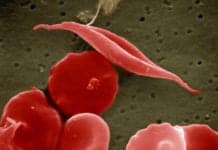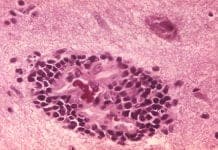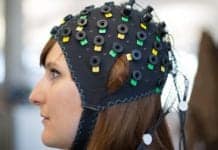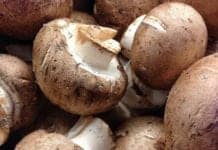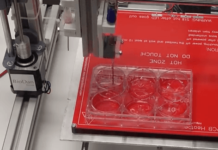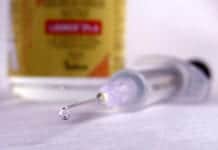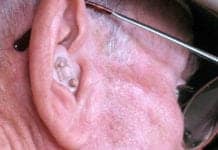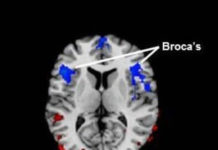Richard Scott
Children Are Already Less Active by Age 7, Study Finds
A new study finds that both boys and girls experience a gradual decline in physical activity starting at age seven, not during adolescence as previously thought.
Too Many Women Seeking to Become Pregnant Lack Proper Nutrition: Study
The study authors also found that nutrition scores rose in accordance with a person’s education level, with the best scores generally among those with a college degree.
More Veggies in Your Diet May Reduce Stress
People who ate three to four servings of vegetables per day had a 12 percent reduced risk of stress than those who consumed just one serving or none at all.
Brain Buzz: A Shot of Electricity May Boost Your Memory
Researchers hope their technique for stimulating the brain through electrical signals can help patients with existing neurological challenges.
This Fish May Teach Humans How to Regenerate Eye Cells
Studying the ability of the zebrafish to regenerate eye cells may lead to new treatments for people with vision loss.
Too Little Gluten May Increase Risk of Type 2 Diabetes
You may want to rethink your gluten-free diet; a study conducted with participants for over 30 years revealed that those who ate gluten were less at-risk for developing diabetes.
Jet Stream Vaccine Technology May Replace Needles
The MucoJet device is a painless way to administer vaccines orally.
Eating More Omega-3 Fats May Reduce Harm of Air Pollution
Researchers found that consuming omega-3 fatty acids led to a reduction of up to 50% of any harm caused by air pollution.
Wireless Smartphone Device Could Reduce Migraine Pain
The high-tech device could be very attractive to individuals who are wary of taking prescription painkillers for their migraines.
Gene-Therapy Used to Cure Boy of Sickle Cell Disease
French researchers have cured a 15-year-old boy of sickle cell disease by interfering with the production of faulty hemoglobin.
Colon Cancer Rates Are Increasing Among Millennials
In what researchers are calling a historic reversal in cancer incidence, colon and rectal cancer rates among millennials and young adults are climbing.
Frequent Tanning Bed Usage Could Be Costly to Your Health
Researchers estimated the impact of lifetime costs for patients identified with tanning bed-associated skin cancer, adding up medical costs, years of life lost and lost earnings due to disease.
Brain Cells Actually Favor One Parent’s Genes Over the Other
The new study adds a wrinkle to the current understanding of genetics and may hold the answer to the cause and incidence of some brain disorders.
Fasting Diet Reprograms Pancreatic Cells, Reverses Diabetes in Mice
The researchers also assessed pancreatic cells from humans with Type 1 diabetes and discovered reprogrammed insulin production after a fasting cycle.
Compound in Red Wine May Boost Lung Health
Researchers tested inhaled resveratrol treatments on mice and found that it ultimately put the brakes on lung decline.
U.S. Life Expectancy Scores Poorly in 2030 Projections
Of the 35 countries assessed, the U.S. ranks 27th in projected life expectancy for both women and men by the year 2030.
Balancing Gut Bacteria Could Be the Key to Solving Chronic Stomach Problems
Researchers are hopeful that a new method of cutting the amount of harmful bacteria in the stomach and intestines can reduce gut-related disease burden.
Gluten-Free Dieters May Have Unsafe Levels of Arsenic, Mercury
A study found that individuals who adhered to a gluten-free diet had twice the amount of arsenic in their urine and 70 percent more mercury in their blood compared to people on a regular gluten diet.
Married People Have Lower Levels of This Harmful Stress Hormone
A new study found that being married essentially reduces a person’s chances of facing stress-derived health problems, and the waning level of cortisol among spouses has a lot to do with it.
Sibling Rivalry: Are First-Born Children Smarter?
Researchers found that parents of multiple children routinely alter their treatment of non-first born children, which affects their IQ and perhaps even personality traits.
Scientists Mimic Deadly Rabies Virus to Destroy Brain Cancer Cells
Researchers have modeled nanoparticles the same size and shape as rabies to reach the brain's nerve cells, with the goal of targeting cancerous ones.
Peppertree Berries May Fight Deadly Superbugs
The ready abundance of the peppertree plant means that, should the treatment prove effective in human trials, the medical community would face no shortage of the disease-fighting berries.
Air Pollution Linked to Higher Diabetes Risk Among Kids
The study adds a new threat to the list of lifestyle and environmental factors that contribute to diabetes, note the researchers.
Breathe, Breathe, Bite: Eating During Labor May Be Beneficial
New research finds that allowing pregnant women to ingest more than water or ice chips during labor is tied to a 16-minute shorter labor, on average.
New Technology Deciphers Thoughts of Paralyzed People Who Can’t Speak
By measuring a person’s electrical activity in the brain, the brain-computer interface allowed patients to communicate in response to simple questions.
Innovative Behind-the-Ear Technique Avoids Neck Scarring After Thyroid Surgery
The technique involves making an incision behind the ear instead of beneath the voice box, where thyroidectomy procedures traditionally occur.
Something Interesting Happens to Our Brains While We Sleep
Scientists believe that brain synapses shrink during sleep and expand when activated during one’s waking hours, and such expansion is a marker for learning and memory.
Hold the Paper: Fast-Food Wrappers Contain Harmful Chemicals
The substances have been tied to severe health problems, such as testicular and kidney cancer, and scientists warn that chemicals in fast-food wrappers may “leach” onto the food products.
Complications During Pregnancy May Increase Autism Risk in Children: Study
The researchers found a number of pregnancy-related complications that were associated with an elevated risk of developing autism after birth, like pre-eclampsia and birth asphyxia.
Party Danger: Balloons Pop Louder Than 12-Gauge Shotgun Blasts
The researchers hope their new study will create greater awareness about the hearing perils of balloons — similar to the acceptance of sunscreen as a normal part of life.
Scientists Uncover Key Fat-Burning Gene in New Study
While previous studies had found many links between the brain hormone serotonin and energy use, the core question remained: How does it impact metabolism?
Puzzling Wave of Amnesia Hits 14 Patients in Eastern Massachusetts
Researchers are still trying to figure out what happened to 14 people in Massachusetts who came down with amnesia from 2012-2016.
More Mushrooms in Your Diet May Help to Prevent Alzheimer’s: Study
Researchers have discovered that mushrooms have major brain-boosting and curative powers.
File, Print, Wear: New 3D Bioprinter Creates Human Skin
Scientists believe they may have found a fast, reliable method to reduce the need for costly procedures like skin grafts.
Not Enough Meat in Diet May Lead to Preterm Birth: Study
Researchers discovered a linear association between low levels of B12, a vitamin largely found in meat and animal products, and preterm birth.
Low Estrogen Levels Tied to Greater Chance of Developing PTSD
Researchers studied how women coped with traumatic episodes during different times of their menstrual cycle, when estrogen levels naturally ebb or increase.
Sugar Express: 30 Percent of Kids Have at Least Two Sugary Drinks Daily
32 percent of boys and 28 percent of girls between the ages of 2 and 19 consumed at least two sugary drinks daily, according to the CDC.
Memory Implants? New Research Could Make Them Possible
Successful tests on rodents showing the possibility of implanting memories are paving the way for the first memory implants for humans, which could help people overcome memory-deficit disorders.
Treating Chronic Pain With Cannabis Could Be Less Addictive Than Opioids
A research team is hopeful they have found a new path to less lethal pain relievers like opioids.
Promising Alzheimer’s Vaccine Moves Closer to Human Trials
The vaccine testing program is currently underway in pre-clinical trials, and the researchers plan to move forward with efficacy tests among human subjects once they conclude.
Could There Finally Be a Vaccine for the Common Cold?
A vaccine for the common cold may be available within the next decade.
Lab-Grown Mini Brains Shed Light on Autism
The researchers wanted to find out whether they could pinpoint changes in brain activity between the mini brains they created, which retained characteristics of a living, human brain.
What’s That? Lack Of Iron May Be Associated With Hearing Loss
The link between iron levels and hearing loss is a strong indicator for treating and avoiding auditory impairments.
Living Near Highways May Increase Dementia Risk
Here's how much your chance for developing dementia increases just by living near a busy road or highway.
Melanoma Drug Halts Spread of Cancer Cells by 90 Percent in Trials
A new drug compound therapy previously used to treat an autoimmune disorder shows promising results when targeting cancer-causing melanoma skin cells.
Stuttering Linked to Low Blood Flow in Brain
Using MRI technology, researchers are able to analyze blood flow to the part of the brain responsible for language and speech.
Parents’ Obesity May Cause Severe Developmental Delays in Children
Parental obesity has an alarming impact on children's developing fine motor and social skills.
Multiple Sclerosis Drug Slows Disease in Clinical Trials
The promising results of Phase III clinical trials for the drug Ocrelizumab revealed a significant decline in disease progression in human subjects.
New Study May Explain Mysterious Spike in Holiday Deaths
In the wake of Christmas, as families celebrate the coming new year, a curious phenomenon occurs – mortality rates spike to the highest levels of the year.
Vitamin D in Your Diet May Improve Your Gut Health
Researchers believe that extra vitamin D helps to improve gut health by replenishing good bacteria.











